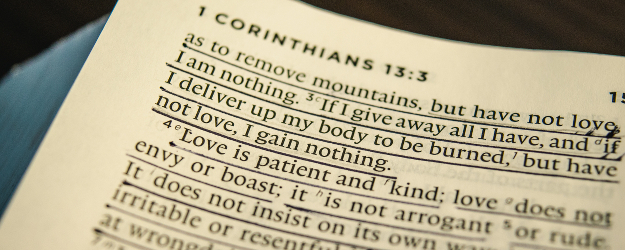
The Meaning of Propitiation in the Bible
Question: I have found several authors I consider to be orthodox disagreeing on the scriptural meaning of propitiation. One seems to understand it as Jesus placating God’s anger by this sacrifice. He denies this is found in the New Testament. The other understands it as atonement for sin and finds it in the New Testament. Could you clarify for me if these authors are at odds with each other?
Answer: The emphasis on the atonement as involving the anger of God about the evil of the human race seems to result more from Protestantism than Catholicism. The traditional characterization of the explanation of “forensic justification” as found in Lutheranism is so ordered. According to this position, sinful man comes into court worthy of condemnation unto death. The merciless anger of God towards this sinner is appeased because God looks away from him and looks with love at his Son dying on the Cross and lets the convicted man off. Man still remains totally depraved and a sinner worthy of wrath in himself, and all his works are sins. But Christ covered over this sinfulness. The above is a characterization of a teaching which is very complex and perhaps does not do justice to it. It is a general attitude which seems to only emphasize the forgiveness of sins and the omnipresent “sinners in the hands of an angry God.”
The Council of Trent reacted strongly to this teaching primarily because it was so insistent that grace was merely a removal of sin but not the sanctification and renewal of the inner man. Though no self-respecting Protestant would say that a Christian should not be virtuous and charitable, still the weight of this teaching is all on the overlooking of evil and the wrathful God. The basis for justification and atonement which only underlines wrath and forgiveness is at best incomplete and at worst illogical in also proclaiming the necessity of good works in the family and society.
I am not a Scripture scholar, but the conflict you mention between seeing propitiation as a remedy to divine wrath and as atonement for sin is more apparent and real and, perhaps, results from this way of teaching atonement. The Council of Trent was clear that justification involved two things: forgiveness of sins and the sanctification and renewal of the interior man. In addition, since there were two aspects to the Original Sin, the atonement for it must also involve two aspects. The first is the fault of sin which is found in free choice. Thus Original Sin, which was caused by the unloving disobedience of the first parents, must be atoned or propitiated for by the loving obedience of our new parents beginning with Mary and accomplished in the sacrifice of Christ. Since the first sin caused moral and physical punishments — ignorance, malice, concupiscence, and suffering and death — propitiation on the part of the Messiah must involve undertaking one of these punishments.
Given the emphasis on loving obedience, obviously it would be unfitting and illogical for the Messiah to take on any punishment which was moral and compromised his freedom to suffer in these areas. As a result, the only punishment fitting for propitiation was love and obedience even unto death, death on a cross (Phil. 2:8). Though God is described as angry at sin and man in the Old Testament, God has no passions. This must be treated in an analogical sense as representing the fact that God disapproves of evil and seeks always to correct it. Since this is the case in the New Testament also, it seems that propitiation could be described there as curing the anger of God at man. But since this involves the two-fold action of the atonement — lovingly obeying in the experience of suffering and death — this would be much more a case of divine love than divine wrath. Also, the wrath of God would be ended towards the just, because they are not just forensically or juridically justified but are truly justified by God in the very being of their souls because — though the just, with the exception of Our Lady, are not freed from moral weakness — this is a tendency to evil which can be progressively cured by prayer. Justification is truly a participation in divine nature (2 Peter 1:4).
Recent Comments